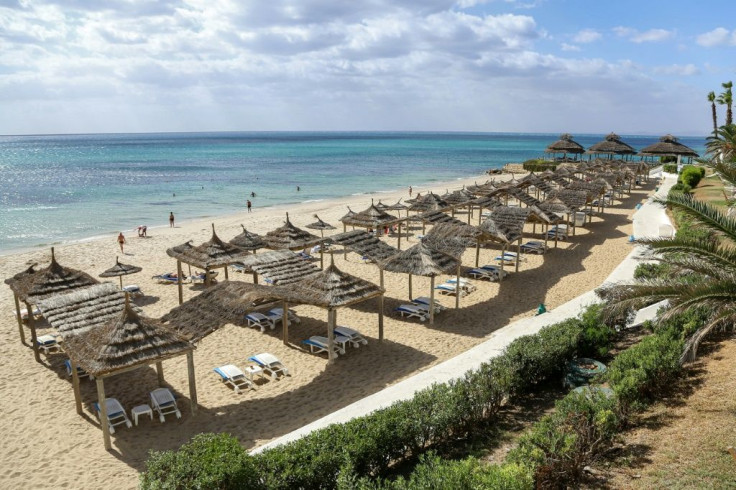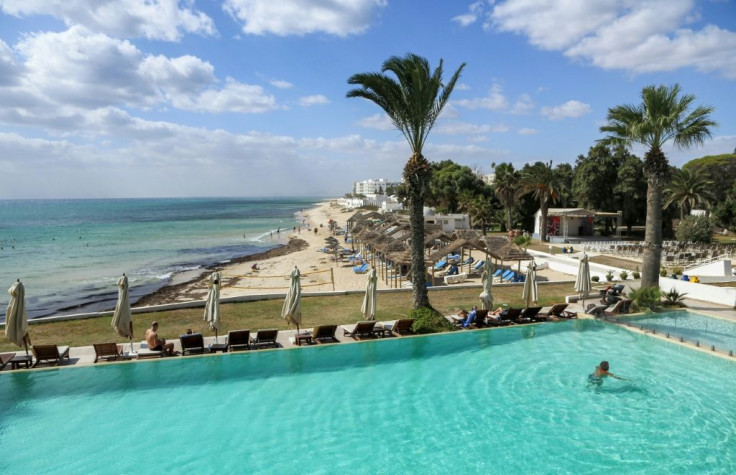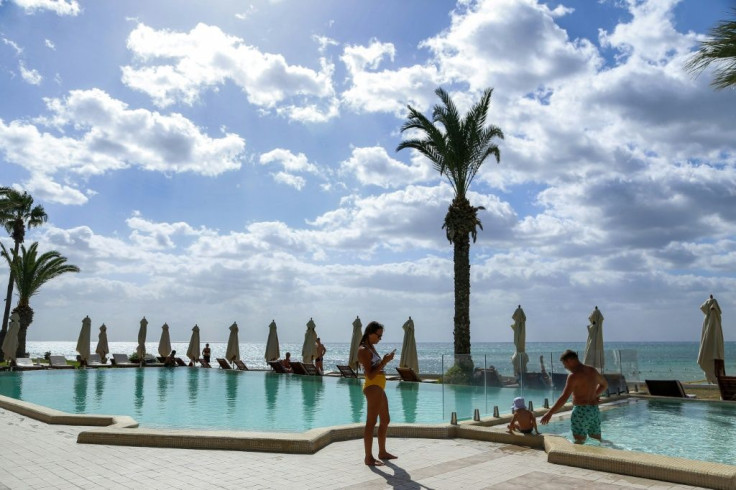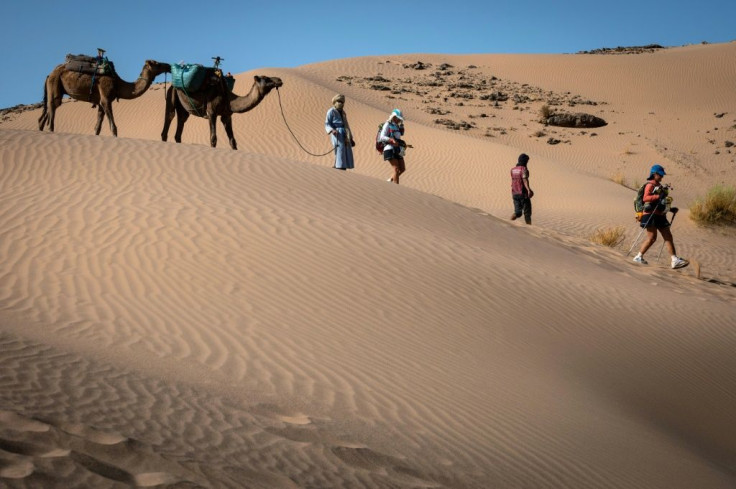Tunisia, Morocco Hoteliers Eye An End To Covid Downturn
The October sun warms the sands of Hammamet beach on Tunisia's east coast, but the coronavirus pandemic still casts a shadow and visitor numbers are yet to bounce back.
After two ruined seasons in a row, operators in Tunisia and Morocco are licking their wounds and hoping the lifting of travel restrictions will spell better days.
This year was better than the last, "which was really a terrible season. But (2021) was still only half as good as 2019," said Haykel Akrout of the Bel Azur hotel.
The luxury facility, with swimming pools overlooking rows of deckchairs along the shore, had to halve its capacity of 1,000 beds in July as a spike in coronavirus cases battered Tunisia.

The country found itself on European nations' red lists, making it virtually impossible for holidaymakers from major markets including France, Germany and Italy to visit.
But as restrictions have begun to ease, some have managed to reach the North African country.
Elena Bakurova flew in from Vladivostok in the east of Russia to celebrate her 44th birthday and "discover Africa".
Yanis Merabti, from France's Lyon, said he had chosen a holiday in Tunisia for the price and the weather.
"France isn't like this in October. You can't get to the beach or enjoy the sun, it's cold," he said. "It's so nice here."

Akrout said the hotel was at around 30 percent capacity, with Russians making up roughly half that number.
"We are talking about survival -- it's nowhere near profitable," he said.
Dora Milad, head of the FTH hoteliers' association, said the "catastrophic" 2020 season had battered the sector, with hotel stays down by 80 percent.

This year saw an 11 percent uptick, she said. "That's very slightly better... but it's still far from normal."
In a good year like 2019, Tunisia registers about nine million hotel stays, and the tourism sector accounts for up to 14 percent of gross domestic product -- providing livelihoods to around two million Tunisians.
Nearby Morocco also depends heavily on visitors to its coastal resorts and historic inland cities.
This season saw a modest influx of tourists when the country reopened its borders in June following months of closure.
Roughly 3.5 million visitors had entered the country by the end of August -- up from 2.2 million the year before.

But that is still far short of the 13 million registered in the same period of 2019.
Facing its own spiking Covid-19 caseload, Morocco was forced to impose new restrictions, such as limiting travel to the tourist hot spots of Marrakech and Agadir.
"The recovery has been focused on the coastal cities, but it has been slowed down by the restrictions imposed in August," said Hamid Bentahar, the president of the country's tourism federation.
In neighbouring Algeria, the sector depends largely on domestic tourism, also hit hard by the pandemic.
National Hoteliers' Federation chief Ahmed Oulbachir said facilities were operating at just a quarter of their normal rate.
Tunisia has seen its coronavirus cases tumble since their mid-year peak, and finally has had some good news on the tourism front too.
Key markets the UK and France have both removed the country -- along with Morocco and Algeria -- from their travel red lists.
For the Bel Azur, "it's already too late", said Akrout.
"But at least it lets us save the 2022 season, as we can sign contracts with tour operators."
Hotels in Hammamet are now preparing for a recovery.
But Akrout says it is time to rethink the sector beyond the cliches of "camels and the beaches".
"Mass tourism has shown its limits. It's time to make use of magnificent sites that are totally unexploited," he said.
Milad of the Tunisian hoteliers' association agreed.
The sector has "sat on its laurels" since the 1960s and failed to fully exploit country's desert south, spectacular interior and the ancient ruins of Carthage, near Tunis, she said.
She also pitched the capital Tunis as a destination for weekend city escapes.
Since the start of the last century, "Tunisia has been a destination for winter breaks in the sun, and to treat lung conditions," she added.
"That could be an opportunity, after Covid, to regenerate and get out in the fresh air."
© Copyright AFP 2024. All rights reserved.







